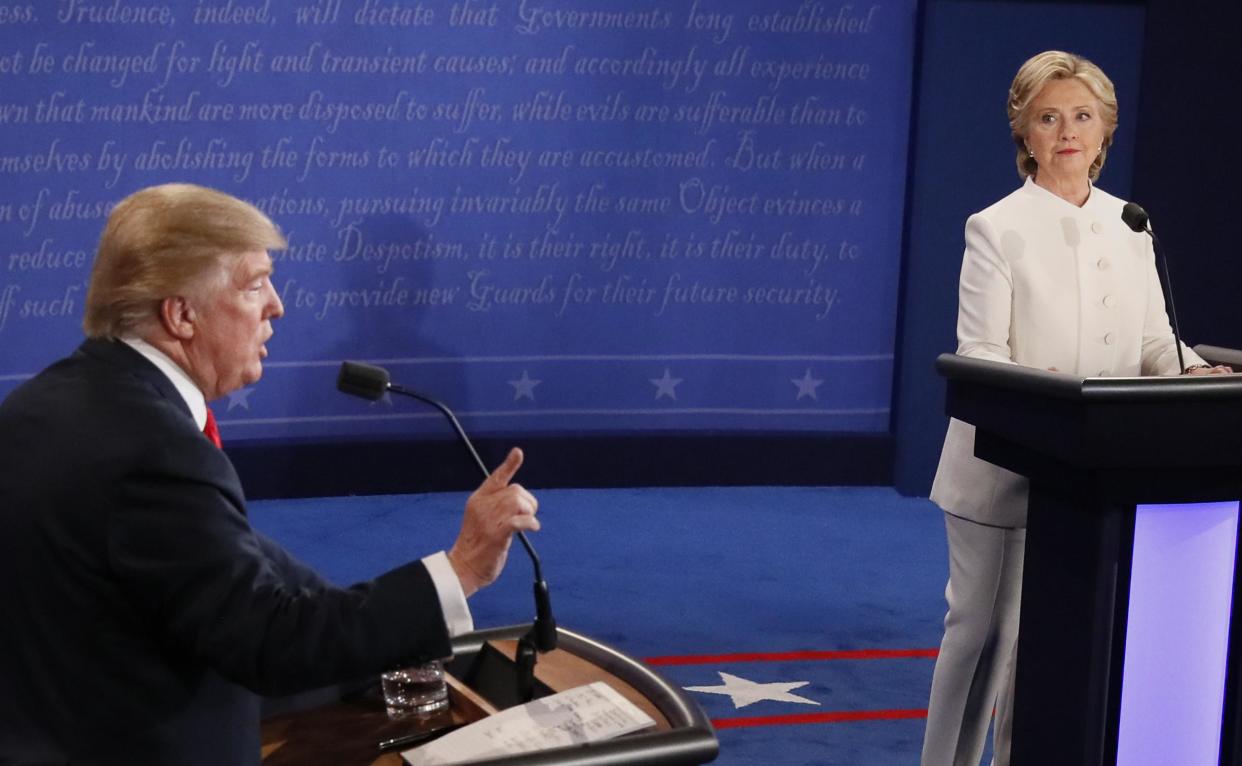Mea Culpa: Pique Trump as we worry about a Moment of Peak

“Moment of peak” appeared in an early version of our report of Hillary Clinton’s appearance in London this week. We quoted her explaining her worry about Donald Trump having the codes to authorise the launch of nuclear weapons. “Congress is worried about whether they can take that power away from Trump so that in a moment of pique he doesn’t pick up that phone and call whoever is sitting in the control centre today,” she said.
Given the subject matter it seems petty to worry about misspelling a word when the meaning is clear, but it is probably better not to attempt spelling reform at random.
Pique viewing: A picture caption in the Daily Edition last weekend said: “Less repeats, especially at peak times, says the broadcasting watchdog.” Alison Smith wrote to say it should be “fewer”, and that is indeed our style.
Again, however, I have bigger questions. The story said: “BBC1 and BBC2 will be required to broadcast original content in 90 per cent of peak evening hours, in new rules set out by regulator Ofcom.” At least we didn’t spell it “pique hours”, although we did use the horrible vaguery “content”, when we could have used “programmes”.
But what surprised me was that Ofcom was laying down conditions for the BBC. Has it heard of Netflix, Amazon Prime and YouTube? Surely a regulator laying down minimum proportions of original programmes for live TV channels is a thing of the past?
Skeletons: Thirteen frameworks in The Independent this week, and only one of them an actual frame – on the set of a dance show at Sadler’s Wells. A framework means the “essential supporting structure of a building”, but is overused as a metaphor for a set of rules. In a comment article we wrote of the problem of children being “exposed to ideologies and moral frameworks which contravene the basic human rights of certain groups of people”. I think “moral teachings” would have been better.
There are also a lot of Brexit-related frameworks about at the moment. We wrote about “a comprehensive free trade agreement and the design of the new regulatory framework to go alongside it”, which is a lot of abstraction with “framework” providing the only thing that sounds solid. A comprehensive free trade agreement is bad enough, but it is a piece of jargon that has an accepted meaning, and we could just have struck out the rest. If you can negotiate a CFTA, you by definition agree the rules that go with it.

 Yahoo News
Yahoo News 
